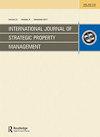对分散城市土地上的集会和房地产开发活动的税收评估分析-韩国首尔广津区
IF 1.7
4区 管理学
Q3 MANAGEMENT
International Journal of Strategic Property Management
Pub Date : 2023-09-26
DOI:10.3846/ijspm.2023.19889
引用次数: 0
摘要
20世纪70年代,由于首尔广津地区的土地调整事业,广津地区被描述为一个家庭居住的地区。在接下来的40年里,土地利用情况发生了巨大的变化,具有讽刺意味的是,现在的住宅区过于分散,商业区非常不足。我们采用了平衡面板数据分析。本研究的数据是2011年至2019年9年间的24177次地税评估和土地组装、分割、分区变更和房地产开发活动。我们发现,事实上的土地集会会比批准开发时多延迟一年,而正式的土地集会不会影响税收评估。发展活动本身只增加了那一年的摊款。最后,商业区内的正式土地组装只增加了次年的评估,而住宅区内的房地产开发只增加了当年的评估。我们建议政府提供有利于土地组合的政策激励措施,以允许在住宅和商业区进行更大规模的房地产开发。研究土地和房地产开发活动对税收评估的影响,可以为政府的税收评估机构建设提供合理的依据。本文章由计算机程序翻译,如有差异,请以英文原文为准。
ANALYSIS OF TAX ASSESSMENT BY ASSEMBLY AND PROPERTY DEVELOPMENT ACTIVITIES IN FRAGMENTED URBAN LANDS – GWANGJIN DISTRICT, SEOUL, SOUTH KOREA
Due to the land readjustment project in Gwangjin District, Seoul, Korea, in the 1970s, Gwangjin was characterized as a single-family residential area for individual households. Over the following 40 years, the land-use situation changed dramatically, and ironically, there is now a too-fragmented residential area and very insufficient commercial areas. We employed a balanced panel data analysis. The data for this study were 24,177 parcel tax assessments and land assembly, split, zoning change, and property development activities over nine years from 2011 to 2019. We found that de facto land assembly would affect the tax assessment by delaying it a year more than it is when the development is approved, while formal land assembly did not. Development activity itself increased the assessment for that year only. Finally, formal land assembly in the commercial zone increased the assessment only for the following year, while property development in the residential zone increased the assessment for that year only. We recommend that the government provide land-assemblyfriendly policy incentives to allow for much larger property developments in both residential and commercial zones. The research on land and property development activities’ impact on tax assessment can provide a reasonable basis for the government’s tax assessment institution building.
求助全文
通过发布文献求助,成功后即可免费获取论文全文。
去求助
来源期刊
CiteScore
4.00
自引率
18.50%
发文量
23
审稿时长
15 weeks
期刊介绍:
International Journal of Strategic Property Management is a peer-reviewed, interdisciplinary journal which publishes original research papers. The journal provides a forum for discussion and debate relating to all areas of strategic property management. Topics include, but are not limited to, the following: asset management, facilities management, property policy, budgeting and financial controls, enhancing residential property value, marketing and leasing, risk management, real estate valuation and investment, innovations in residential management, housing finance, sustainability and housing development, applications, etc.

 求助内容:
求助内容: 应助结果提醒方式:
应助结果提醒方式:


